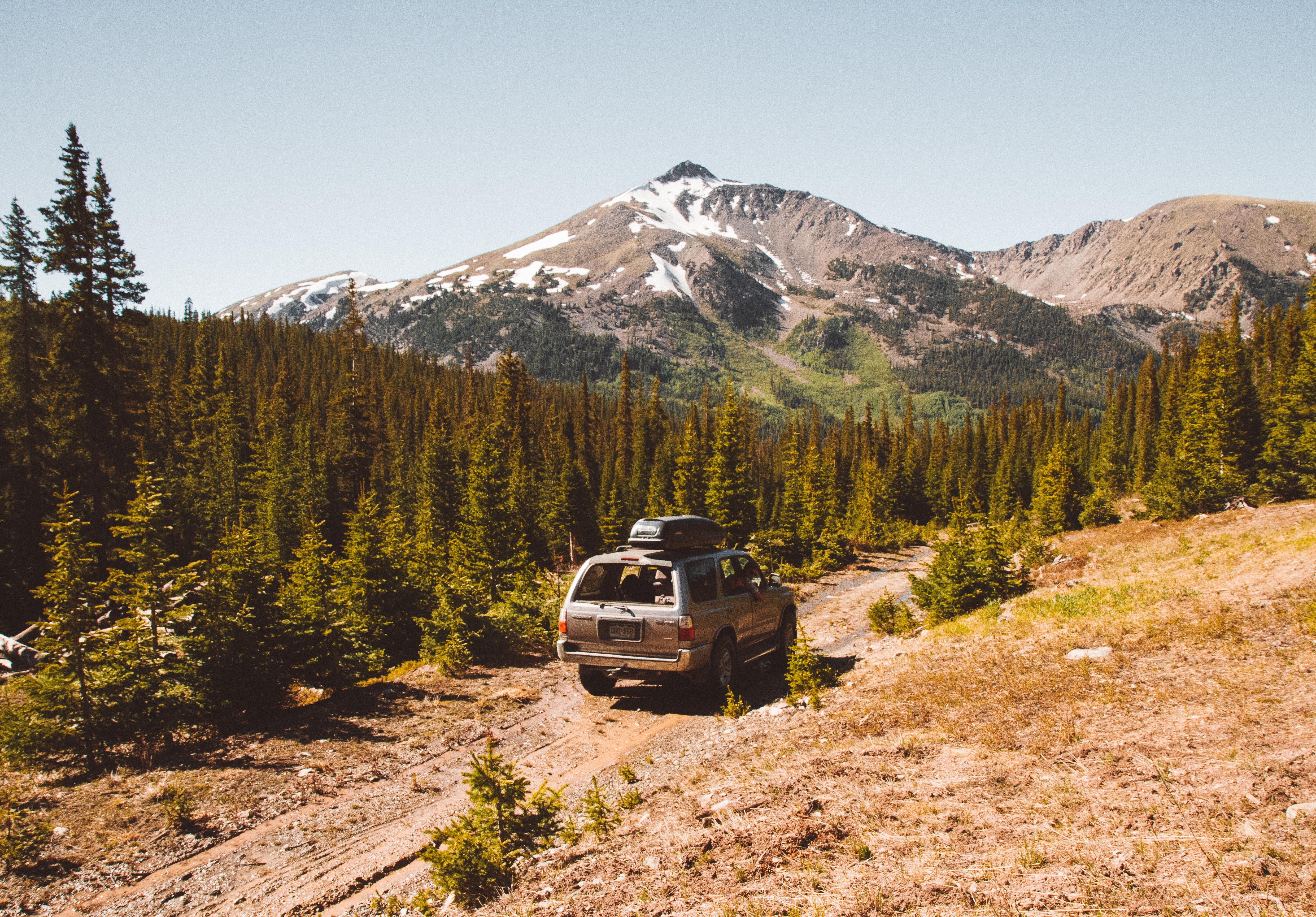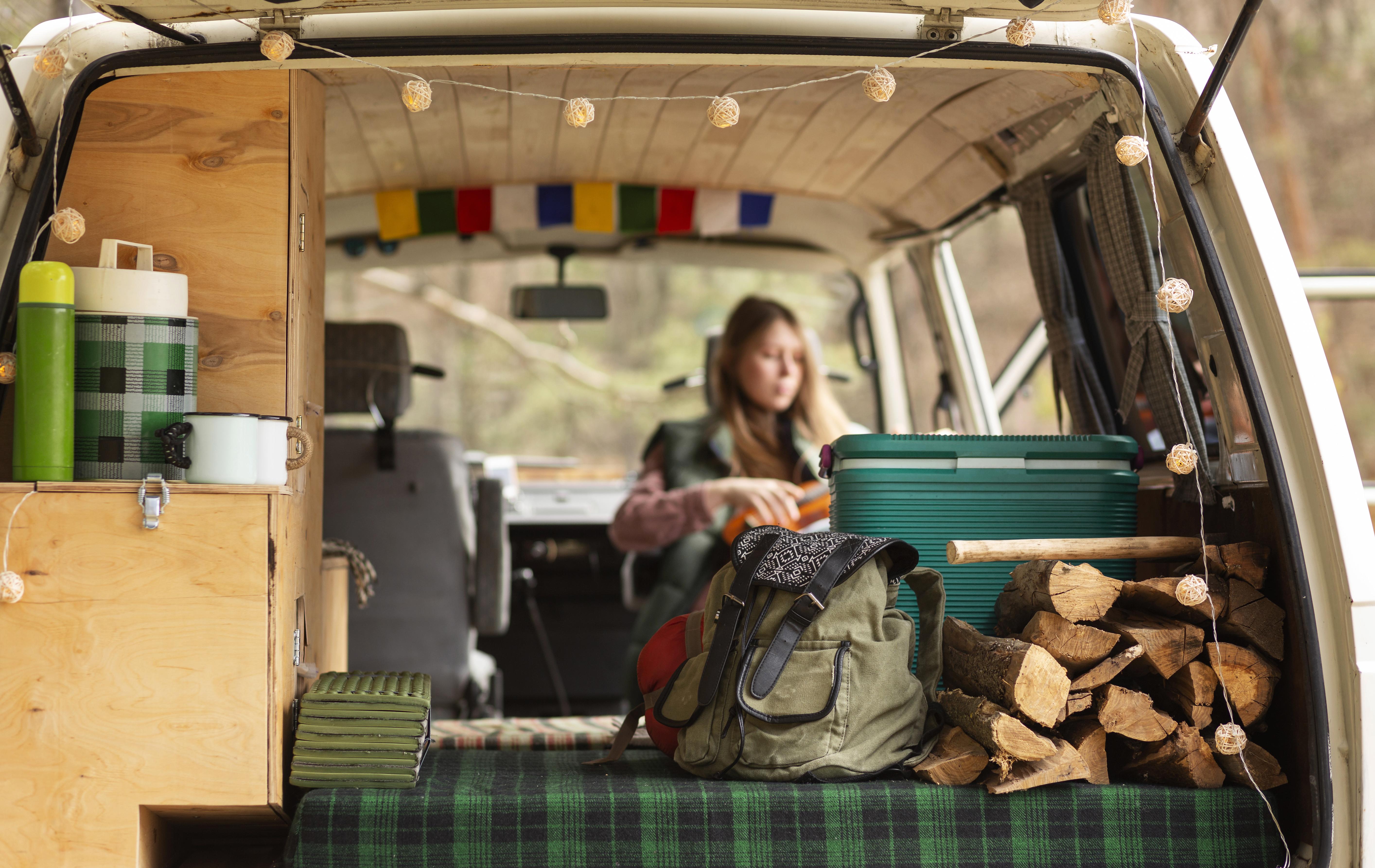Car camping vs Tent camping – Full comparison
Are you planning on a grand adventure into the world around you? Are you unsure if either car camping or tent camping is the way to go?
In this article we’ll give you the answer you’re searching. We’ll go over pros of both styles, pricing and the gear you need!

Actually, as I’m writing this, my partner and I are preparing our grand car camping trip through the Canadian Rockies. I’m currently in Banff, and we’re going to Jasper, then head west through beautiful British Columbia, out onto Vancouver Island, then head back towards Banff through Yoho National Park!
Car camping and tent camping are two relatively similar styles of camping. Car camping often refers to two different styles: Sleeping in your car or sleeping in a tent besides your car. In this article, we’ll refer car camping to sleeping in your car.
What’s the difference between car camping and tent camping?
Car camping and tent camping differ a lot when it comes to comfort and style. Tent camping is the more lightweight approach, where you travel out by foot, set up your tent, and live really close to nature. Car camping, on the other hand, has more comfort and less hassle when it comes to setup and gives you the opportunity to travel long distances.
Pricing and gear differ between the two styles, where tent camping usually is the cheaper considering not investing in a car or paying for fuel. We’ll talk more about that later in the article.
The pros of car camping

1. Saving time on setup
A major advantage of car camping is the short time it takes to set up camp. In most cases, depending on your setup, you only need to find a rather flat parking spot. And that’s about it, really. Usually, your bed and all essentials are already set up in the trunk.
If we compare that to tent camping, the setup time is minimal. When you’re tent camping, you first have to find a flat spot, then comes setting up the tent, prepping sleeping bags, heat source, etc. This whole process might take hours, and that’s without accounting for the time to carry the gear to the camping spot.
If setup and time are a factor for you, then car camping clearly wins.
2. Flexibility in urban settings
Rest-stops, gas stations, driveways, camping spots. You can camp at essentially every spot where you can park a car. You’re maybe travelling far to some awesome wilderness spot or just driving wherever the road takes you. With the minimal setup time in consideration, popping in for a quick camp whenever convenient is a big plus for car camping.
3. Safety
Being enclosed in a locked car simply feels safer than sleeping in a tent. And it also is. There are a bunch of tips and tricks to make your car even safer, like wrapping your seatbelts around the door handles and putting up one-way see-through window shades. Also, keep your car keys within reach so you can drive off if you ever feel unsafe.
Your camping spot is usually crucial when it comes to how safe you are. We recommend campgrounds, rest stops, or hotel parking lots. Here, you’ll always be surrounded by cameras and people doing the same thing as you.
Avoid shady places where there isn’t much traffic or other people camping.
4. Reliability in different weather conditions
A car is designed to hold up against all weather conditions, whereas a tent might not. Also, wrong tent setup when it’s raining equals a bad time. Water might leak in, clothes get wet, and in the worst case scenario, your sleeping bag gets soaked.
Windy days are also the absolute worst when you’re tent camping. I’ve spent a couple of sleepless nights because of my tent flapping in the wind. Partly to the sound, but also worrying if my setup is gonna hold throughout the night. A car might squeak and creak a little, but it’s barely anything compared to a tent.
The pros of tent camping

1. One with nature
Being close to nature is something that all campers sought. And tent camping is maybe as close as you’ll get, except for bivouacking, of course. There’s nothing better than waking up to birds chirping, the smell of nature, grass, or the woods in the morning.
If you really want to be close to nature, then tent camping is the best choice.
2. Costs less
Tent camping is a more budget-friendly option compared to car camping. You don’t need to invest in a large, fuel-heavy car with the risk of breaking down and ruining your camping setup completely. Tents are affordable, costing around $100-$300, and last long if taken care of correctly. You can also easily get a hold of a second hand tent, which will drive down the costs substantially.
If you’re on a budget, get a tent!
3. Flexibility in the wilderness
This relates to being one with nature, as we talked about earlier. It’s difficult to camp in urban areas with a tent, but in the wild, it’s the absolute best. You can essentially wander off onto any trail and find a camping spot with the most breathtaking views ever. The ultimate freedom.

4. Can fit more people
Tents come in all shapes and sizes; some are for just a single person, while others fit whole families. Tent camping has the potential to give you loads of room. Some tents even act as a common area, where you put smaller sleeping tents inside, creating a mini community inside.
You can also tailor your tent setup after how big your group is and what your preferences are, making it really flexible when it comes to layout.
Car camping vs Tent camping: Prices and gear

Okay, now that we know the advantages of car camping vs tent camping, it’s time to talk gear and prices. We’ve already established that tent camping is more budget-friendly. This does, of course, depend on what kind of gear you buy. But how much more expensive is actually car camping? And what type of gear should I expect to invest in before committing?
In the table underneath, we’ll list the essentials and what kind of prices you can expect for car camping vs tent camping:
| Gear | Car Camping | Tent Camping |
|---|---|---|
| Sleeping setup | Mattress, foam pad, or air mattress ($30-$150) | Lightweight sleeping pad ($40-$100) |
| Blankets/ Sleeping Bag | Bedding or sleeping bag ($30-$100) | Sleeping bag ($30-$100) |
| Stove/ Grill | Portable propane stove or portable electric stove ($30-$200) | Portable gas stove ($30-$100) |
| Water Storage | Large water jugs or containers ($5-$20) | Smaller water jugs or flasks ($5-$10) |
| Window covers | Sun shades or black out covers. ($10-$40) | Not needed. |
| Light source | Led strips, flashlight or lantern + extra batteries ($5-$40) | Flashlight, lantern or headlamp + extra batteries ($5-$40) |
| Storage | Plastic containers or other organizers ($10-$50) | Lightweight backpack ($50-$150) |
| First aid kit | Basic first aid kit ($20-$50) | Basic first aid kit, choose more lightweight ($20-$50) |
Summary:
Car Camping: $110 – $660 + Fuel
Tent Camping: $130 – $550
Remember that these prices are not set in stone, most of the gear can be found in second-hand shops or Facebook marketplace. I’ve estimated these prices from Amazon, Ikea, Decathlon, bass pro shops and Canadian tire.
Car camping vs tent camping: which one is actually better?
Okay, now to the grand question: What is better? Car camping or tent camping?
Well, the answer is: It depends. What kind of camping are you expecting? Do you want to be close to nature, camp with great views, and still keep it on a budget? Then tent camping is your go-to.
On the other hand, do you want more comfort and modern style with greater storage? Car camping might be your choice.
You can also combine both with a tent setup in your car, ready to go when you want to hike up a mountain and spend the night there. The possibilities with car and tent camping are endless, especially with good planning, a spontaneous mind and, adventurous attitude!
FAQ
What’s the differece between backpacking and car camping?
Backpacking refers to living out of your backpack, often sleeping in a tent, hostels, or hotels when travelling. Car camping refers to sleeping and camping in your car, or a combination of travelling with your car and camping in a tent.
Are car tents any good?
Car tents are a great option to level up your car-camping game. The tent attaches to the roof or side of your car and works as an extension, often a sleeping space, with zero setup time. Car tents are good, especially if you need to fit more people on your camping journey!
Is sleeping in a car warmer than a tent?
A car is usually warmer than a tent because of its insulation and elevation from the ground. However, a car can also get really warm during the summer. The windows and insulation can make the car feel like a oven. Having good ventilation is a and o when it comes to both car camping and tent camping, both during summer and winter.
